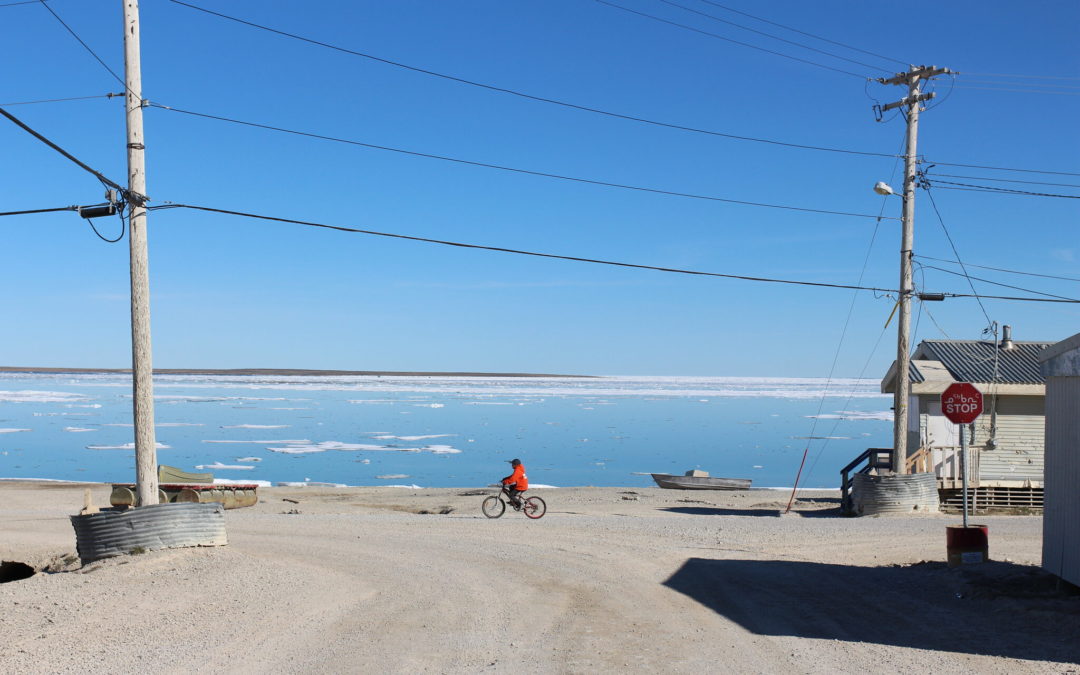
Sub Par
Credit…Ludovic Marin/Agence France-Presse — Getty Images
At the very least, what happened here is a major blunder in geopolitical respect and basic communications to a longstanding important ally. Not to mention the legal or contractual consequences. That’s a hornet’s nest itself. If this happened in a business deal outside the realm of national security or government military arena, there would be millions, perhaps hundreds of millions, of punitive penalties imposed.
I understand the decision to go with nuclear powered subs. There’s no comparison with conventional subs. Certainly not for security purposes when patrolling the Pacific. That’s a simple product comparison. They’re better. Period. How the French and Australia approached their original deal with that choice or conversation in mind is another topic. The issue here is not about that. It is about the multi billion dollar contract between them that got severed. It’s not even about why. It’s about how it happened.
From how this clumsy decision was presented, it’s almost unforgivable behavior from the full trio of Australia, Britain, and U.S. given the size of the preexisting, now cancelled, agreement between Australia and France.
This mishandling will cover Biden’s shoes in excrement for quite some time. It was ultimately his call to handle it this way, and he deserves the pain to fight his way out. But, the equal, if not more accountability, is in the complete failure of multiple military officials and diplomacy advisers to do something, anything, to make sure this incident had a chance, any chance, to be presented in a less damaging light. Instead, what they all collectively let happen, was radioactive fallout.
In Submarine Deal With Australia, U.S. Counters China but Enrages France
https://www.nytimes.com/2021/09/16/world/europe/france-australia-uk-us-submarines.html
Related: https://www.politico.com/news/2021/09/17/france-ambassadors-us-australia-recall-512609

Climate Change Hasn’t Changed
Recently, while cleaning out some files, I came across a news story I saved from 2009. It still resonates today with the same common sense logic and awareness that remains elusive among the masses, and frustratingly absent from public policy, political power groups, and corporate accountability. 12-13 years ago.
Sure, things have improved. But the proportion of outrage and individual virtues in comparison to the broad scale changes needed in oil reliance, automotive design, and all around energy production industries, remains too small to make a difference thus far.
A related link from 2015 I included at the bottom describes the problem as described by climate scientists, in even more stark terms than Friedman.
This planet is on the short side of the math, and that’s always been due to the blindness or denial of what the problem to solve actually is.
The last two Q & As in this interview say it best. >MB
Q&A: Columnist Tom Friedman on Climate Change
In his bestselling book “Hot, Flat, and Crowded,” New York Times columnist Thomas L. Friedman argues that countries that pioneer renewable-energy technologies will increase their national security and prosperity at the expense of those that cling to fossil fuels. He spoke to NEWSWEEK’s Sharon Begley: (Article continued below…)
Begley: A Gallup poll found that 41 percent of Americans—a record high—say concerns about climate change are exaggerated. Why is the public so resistant to the findings of climate science?
Friedman: What’s ironic is that that poll comes out at a time when more and more studies are suggesting that climate change is happening faster, bigger, quicker and with more powerful impacts than we anticipated just a few years ago. For whatever reason, climate change was presented as a political issue, and because [of that] there had to be sides … Also, there is a real aversion among scientists to popularizing things, so sometimes they’ve been a little diffident about making the case strongly. And part of the problem is that the most vocal global advocate on climate change has been Al Gore. For all these reasons it’s not surprising that the average person would be confused.
In the 1970s, the country was making progress toward renewable energy. Then things came to a screeching halt. What happened?
We were too successful. We imposed draconian mileage standards on cars, and it had a very big impact. At the same time, there was a global oil glut, and oil prices collapsed after Jimmy Carter left office [removing the economic pressure to move away from oil]. Ronald Reagan came in and instead of keeping up the initiative to have more solar energy, have more wind power, invest in energy efficiency and continue increasing mileage requirements for cars, he put the brakes on. Reagan proudly stripped the solar panels off the White House roof.
In “Hot, Flat, and Crowded” you use the phrase “dumb as we wanna be” to describe Americans’ attitudes toward energy and climate. What examples did you have in mind?
There are so many. I was trying to convey this idea that we thought we could sit back and delay everything until we got around to it. As a result we fell behind in the renewable-energy industries that are going to be the next great global industry. I believe this industry, which I call ET—energy technology, the search for abundant, cheap, clean, reliable electrons—is going to be the IT of the 21st century. One of the problems with the term “green” is that the definition was imposed by its opponents, by the Rush Limbaugh crowd. They named green [as] liberal, tree-hugging, sissy, girlie-man, unpatriotic, vaguely European. What I’ve been trying to do in this book is to rename green as geopolitical, geostrategic, geo-economic, capitalistic, patriotic. The country that owns green, that dominates that industry, is going to have the most energy security, national security, economic security, competitive companies, healthy population and, most of all, global respect. I want that country to be the United States of America. This isn’t just about electric power. It’s about economic power, it’s about national power.
You’re critical of efforts to get people to make small, symbolic gestures to use less energy. What’s wrong with that?
The danger is you think that if you change your light bulbs [to compact fluorescents], you’ve solved the problem. My motto is, change your leaders, not your light bulbs. Because what leaders do is rewrite the rules. They rewrite the rules of what utilities can burn as energy. They rewrite the car-mileage rules. They rewrite the rules of whether a nuclear plant can be built. These are the only things that give you [change at the scale we need]. Without scale change right now, in terms of climate we’re really cooked. You know, I come out of the world of covering foreign policy, and that trained me to look for where the leverage points are. I don’t think the leverage points now are in more consciousness-raising.
In the past, the public was ahead of politicians on issues such as civil rights. Is that the case with energy and climate?
It’s all about how you frame the issues. We’ve done polling at The New York Times, and if you ask people, would you like a carbon tax or a [higher] gasoline tax, they say no, no. But then you say, would you like a tax that combats climate change over the long term, [and they say,] yeah, I could see that. And would you like a tax that relieves us from living under the thumb of petro-dictators, [and they say,] yeah, I’d like that. I mean, what is it we’re trying to do? [To change things so] that there won’t be such a thing as a “green car,” there will just be a car, and you won’t be able to build it except at the highest levels of efficiency. There won’t be such a thing as a “green home,” there will just be a home, and you will not be able to build it unless it is at the highest standards of green energy, efficiency and sustainability. You’ll know the green revolution has been won when the word “green” disappears.
Original link: https://www.newsweek.com/qa-columnist-tom-friedman-climate-change-77091
Related from 2015: https://phys.org/news/2017-10-global-doesnt-emissions.html

What Does It Mean for a Whole Nation to Become Uninhabitable?
Ms. Lockwood is the ideas editor at the website Rest of World and the author of the forthcoming book “1,001 Voices on Climate Change,” from which this essay is adapted.
Devi Lockwood spent five years traveling the globe talking to people about changes they were seeing to their local water and climates. Here are some of the stories she heard.
Tuvalu
A little more than 10,000 people live in Tuvalu. Generations ago, Polynesians navigated here by the stars, calling the sprinkles of land in the vast blue of the South Pacific home. With 10 square miles of total area, less than five miles of roads and only one hospital on the main island, Tuvalu is the fourth-smallest countryin the world. Disney World is four times larger in area. Tuvalu’s capital city, Funafuti, sits about 585 miles south of the Equator.
By some estimates, Tuvaluans will be forced, by water scarcity and rising sea levels, to migrate elsewhere in the next 50 years. This mass exodus is already happening. Large Tuvaluan outposts exist in Fiji and New Zealand.
I came to Tuvalu with a question: What does it mean for a whole nation to become uninhabitable in my lifetime?
Tauala Katea, the director of Tuvalu’s meteorological service, sat in his office near the airport and tilted a monitor to show me an image of a recent flood when water bubbled up under a field by the runway. “This is what climate change looks like,” he told me.
“In 2000, Tuvaluans living in the outer islands noticed that their taro and pulaka crops were suffering,” he said. “The root crops seemed rotten and the size was getting smaller and smaller.”
Those two starchy staples of Tuvaluan cuisine are grown in pits dug underground. This crop failure was the first indication that something was wrong. The culprit was found to be saltwater intrusion linked to sea level rise.
The last 20 years have marked a period of significant change in the Tuvaluan way of life. Thatched roofs and freshwater wells are things of the past. The freshwater lens underneath the island, a layer that floats above denser seawater, has become salty and contaminated. Each home now has a water tank attached to a corrugated iron roof by a gutter. This rainwater is boiled for drinking and also used to wash clothes and dishes and for bathing.
Imported food is now commonplace. During my month in Tuvalu (from December 2014 to January 2015), I learned what climate change tastes like: imported rice, tinned corned beef, a handful of imported carrots and apples, the occasional local papaya, bananas and many creative uses for custard powder.

Unethical? Unnecessary? The COVID-19 vaccine booster debate intensifies
As United States reveals its plan to offer an extra dose of COVID-19 vaccine, equity and scientific questions abound.
A version of this story appeared in Science, Vol 373, Issue 6558.
As the extraordinarily infectious Delta variant of SARS-CoV-2 continues to spread around the world, vaccines’ powers are showing their limits. Although they are still extremely effective at preventing severe COVID-19, the tantalizing hope that the shots could block almost all infections—and squelch transmission—has evaporated. That has upended return to office and school plans, threatened economic recoveries, and spurred fresh political rows over mask and vaccination mandates.
